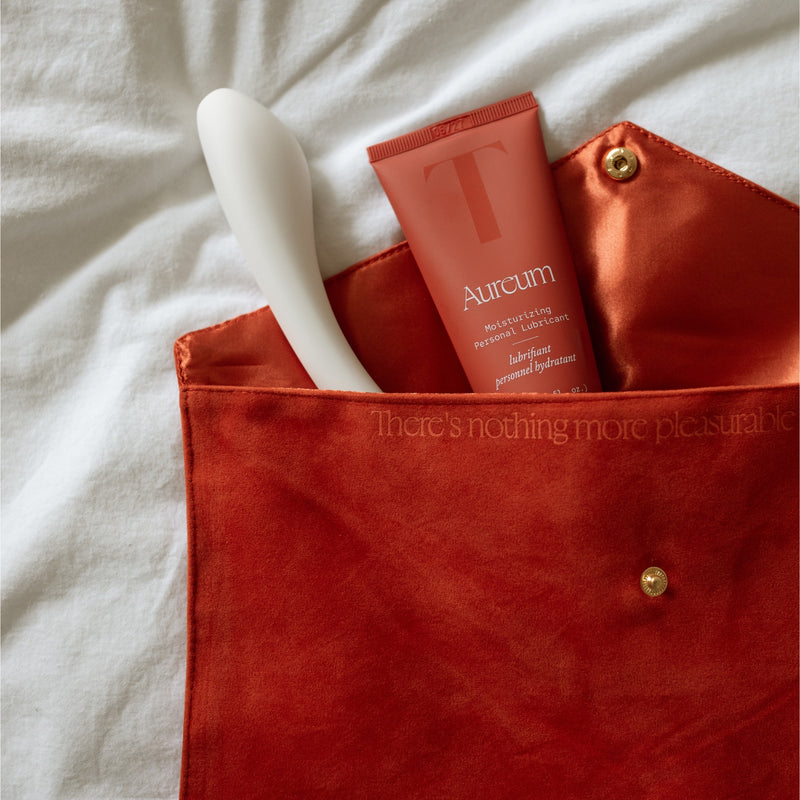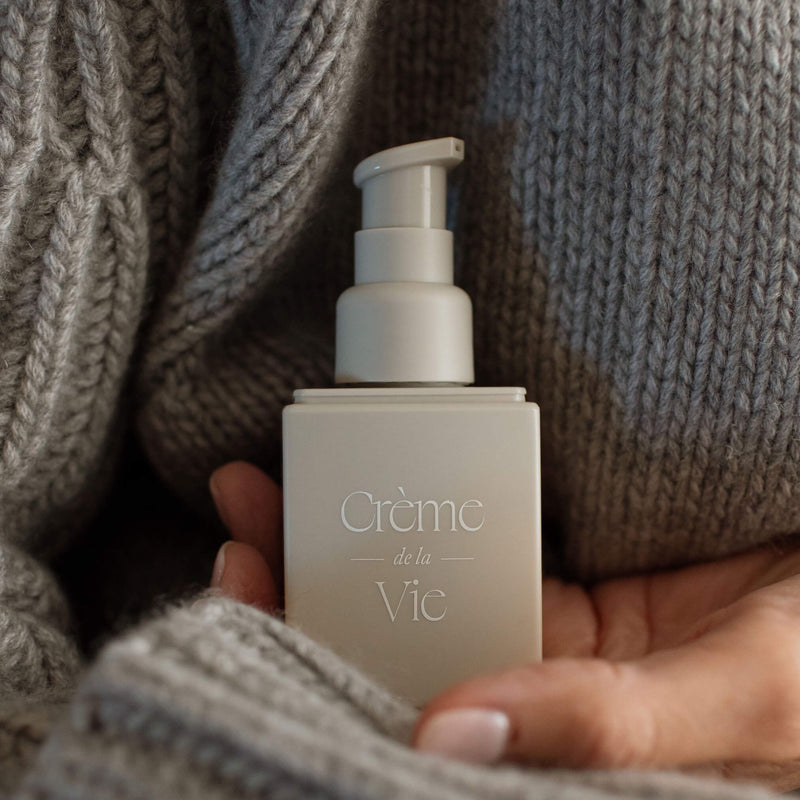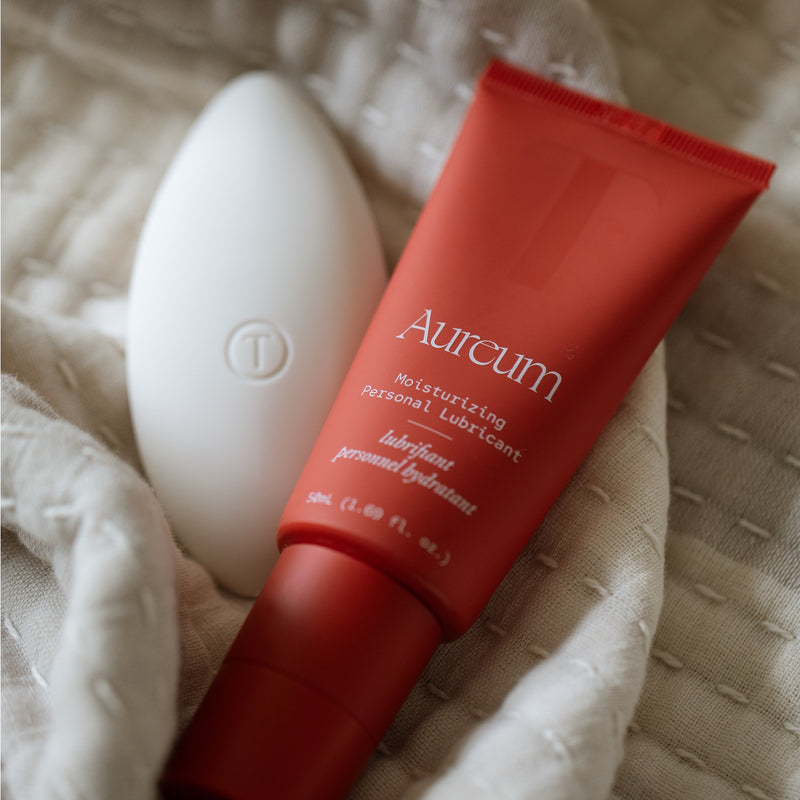Menopause 101
Overwhelmed by all things menopause? We created this simple FAQ to help. Below we break down the basics, options for relief, and some of the most commonly Googled questions surrounding The Change.
The basics
What is menopause?
Menopause is a biological process that is a natural part of aging. It marks the end of your menstrual cycle and reproductive years and is defined as the point in time when you have not had a period for a full 12 months. According to Johns Hopkins, women tend to hit menopause naturally at about the same age as their mothers, which on average is at 51 years old. However, menopause can also occur earlier due to a surgery or medical treatment.
What is perimenopause?
Perimenopause is a transitional phase leading up to menopause that is triggered when your ovaries start producing less estrogen. This change in hormones affects your body in many ways, leading to a variety of symptoms. While it typically starts in your mid-40s, perimenopause can begin as early as 35 for some women and can last between 4 to 10 years, according to the Cleveland Clinic. While periods may be irregular, it is possible to get pregnant during this time.
What symptoms are associated with perimenopause and menopause?
While the hallmark symptom of perimenopause and menopause is the hot flash (which is experienced by approximately 75% of women per Johns Hopkins Medicine), women face a range of both physical and emotional symptoms during this period of change.
According to The Mayo Clinic, perimenopause and menopause symptoms include:
- Irregular periods
- Vaginal dryness
- Hot flashes
- Changes in mood
- Anxiety and depression
- Memory and concentration problems
- Chills
- Trouble sleeping
- Night sweats
- Weight gain
- Thinning hair and drying skin
- Loss of breast fullness
What can I expect in postmenopause?
As the name suggests, postmenopause is the stage after you’ve gone a full year without a period. For many women, these are some of the best years of their lives. For others, menopausal symptoms can persist for another decade. In either case, postmenopausal women are at an increased risk of heart disease, stroke, and osteoporosis due to the body’s lower levels of estrogen and other changes related to aging such as weight gain. It’s important to talk to your doctor about your symptoms and explore the natural and hormonal options available to you.
Physical & Emotional Relief
Who can I talk to for help during menopause?
According to The Mayo Clinic, menopause does not require medical treatment, but rather solutions and care teams that are focused on relieving your symptoms and managing age-related conditions. Since everyone’s menopause experience is unique, different people require different kinds of care and support. When thinking about your symptoms, it’s useful to know who you can reach out to for help.
- Your GP or OB-GYN. This is usually the best place to start to get through the basics and rule out whether any of your symptoms are abnormal.
- Menopause care specialist. Since many GYNs aren’t experts in menopausal care, many women find a menopause care specialist to help them better understand their symptoms and explore their options. The North American Menopause Society (NAMS) makes it easy to find a specialist in your area.
- Pelvic floor physical therapist. Typically, providers aren’t able to spend too much time with you during an appointment which is why seeing a pelvic floor physical therapist can be especially useful. These professionals can help you use your own body to find relief rather than immediately resorting to pills and creams. Check out our Q&A with physical therapist Heather Fraebel to learn more about how she supports women during menopause.
- Midwives. While they may not naturally come to mind later in life, a midwife can be a great resource during menopause and beyond. Midwives can help you recognize the signs of menopause and assist in your care in a more holistic way.
- Couples therapists. Menopause can be a particularly difficult time for couples as they navigate the obstacles of menopause, sex, and intimacy. A couples therapist can help you and your partner understand how to address these changes and work through them together.
- Your family and friends. Last, but certainly not least, it’s important to lean on your partner, family, and friends during this time.
What are natural remedies for menopause?
For many women, non-hormonal, natural remedies are the preferred place to start for menopause-related symptoms. Harvard Medical School recommends a number of options – see a quick list below.
- Cognitive-behavioral therapy can help reduce hot flashes.
- Weight loss can help decrease the intensity of symptoms.
- Soy high in diadzein can help duplicate some of estrogen’s effects in the body.
- Regular sexual activity – with or without a partner – can help with vaginal dryness and atrophy, and maintaining a healthy sex life can improve sleep, incontinence, and stress. Vaginal moisturizers, lubricants, and personal massagers are often recommended by menopause care specialists to help women maintain a sexual wellness routine during menopause.
- Lifestyle changes such as practicing yoga, maintaining a balanced diet, deep breathing, and relaxation techniques are key to keeping your mind and body healthy during a time of intense physical transition.
- Herbal remedies like black cohosh, dong quai, ginseng, and wild yam do not have a lot of clinical evidence, however many women report positive results in relieving symptoms.
What hormonal treatments are available for menopause?
According to Johns Hopkins, there are two main hormone-based therapies available to help women manage menopause symptoms.
- Hormone therapy (HT) involves taking a combination of estrogen and progesterone. You’ll see it prescribed as a pill, patch, or vaginal cream.
- Estrogen therapy (ET) entails taking only estrogen and is often prescribed to women who have had a hysterectomy. Like HT, you’ll see it prescribed as a pill, patch, or vaginal cream.
Commonly Googled....
What is early menopause?
Early menopause is a term used if you experience menopause between 40 and 45 years old, whereas women who experience The Change before age 40 are considered to have gone through what’s called premature menopause. This is not to be confused with perimenopause, which describes the transitional phase leading up to menopause.
What is the genitourinary syndrome of menopause (GSM)?
The genitourinary syndrome of menopause (GSM) describes the genital, sexual, and urinary changes associated with menopause. According to The Mayo Clinic, GSM is caused by a decrease in estrogen production, making your vaginal tissues thin, dry, less elastic, and more fragile.
The signs and symptoms of GSM include:
- Vaginal dryness
- Vaginal burning
- Vaginal discharge
- Genital itching
- Burning with urination
- Urgency with urination
- Frequent urination
- Recurrent urinary tract infections
- Urinary incontinence
- Light bleeding after intercourse
- Discomfort with intercourse
- Decreased vaginal lubrication during sexual activity
- Shortening and tightening of the vaginal canal
How do I manage sex after menopause?
Sex and menopause can be challenging, but menopause should not mark the end of your sex life. Regular sexual activity comes with a host of physical and emotional health benefits such as decreased stress, improved sleep, reduced incontinence, lower risk of heart disease, lower blood pressure, and more. But during menopause, women often experience changes to their libido, vaginal dryness, and atrophy – making sex more complicated. According to The Mayo Clinic, sex – with or without a partner – may help with many of these symptoms, meaning providers often recommend women embrace a sexual wellness routine with the help of the proper tools. Personal massagers, lubricants, moisturizes, estrogen creams, and dilators can all help you maintain a healthy sex life from peri-to postmenopause.
Can you get pregnant after menopause?
Once you’ve reached menopause – meaning you haven’t had a period for a full 12 months – you cannot get pregnant naturally. However, if you’re still in perimenopause, it is possible to make a baby even though your periods may be irregular.
What causes breast pain after menopause?
While it is more common in younger women, postmenopausal women can experience breast pain. According to Harvard Medical School, breast pain after menopause can come in many forms and is commonly referred to as noncyclical breast pain – meaning it is not linked to menstruation. Noncyclical breast pain can be caused by infection, injury, medications, cancer (although rare), support problems, costochondritis (inflammation of cartilage in the rib cage), arthritis, shingles, and more.
Why am I still spotting after menopause?
Spotting after menopause – meaning you haven’t had a period for a full 12 months – is abnormal and should be evaluated by your doctor. In most cases, it’s is not due to something dangerous, but given the nature of potential causes, it’s important to take it seriously. According to Harvard Medical School, most postmenopausal bleeding is caused by vaginal atrophy, uterine fibroids, or benign polyps – all of which are noncancerous conditions. However, spotting after menopause can also be a sign of cancer of the uterus, cervix, or vagina.
What is the North American Menopause Society?
The North American Menopause Society (NAMS) is the leading nonprofit organization dedicated to the understanding of menopause and healthy aging. Their mission is to promote the health and quality of life of all women during midlife and beyond.
References
- https://www.hopkinsmedicine.org/health/conditions-and-diseases/introduction-to-menopause
- https://my.clevelandclinic.org/health/diseases/15224-menopause-perimenopause-and-postmenopause
- https://www.mayoclinic.org/diseases-conditions/menopause/symptoms-causes/syc-20353397
- https://www.womenshealth.gov/menopause/menopause-and-your-health
- https://www.mayoclinic.org/diseases-conditions/menopause/diagnosis-treatment/drc-20353401
- https://portal.menopause.org/NAMS/NAMS/Directory/Menopause-Practitioner.aspx
- http://www.midwife.org/lifetime-care
- https://www.health.harvard.edu/menopause/nonhormonal-treatments-for-menopause
- https://www.womenshealth.gov/menopause/early-or-premature-menopause
- https://www.mayoclinic.org/diseases-conditions/vaginal-atrophy/symptoms-causes/syc-20352288
- https://www.medicalnewstoday.com/articles/320228
- https://www.health.harvard.edu/pain/breast-pain-not-just-a-premenopausal-complaint
- https://www.health.harvard.edu/blog/bleeding-after-menopause-get-it-checked-out-2019011815809
- https://www.menopause.org/









